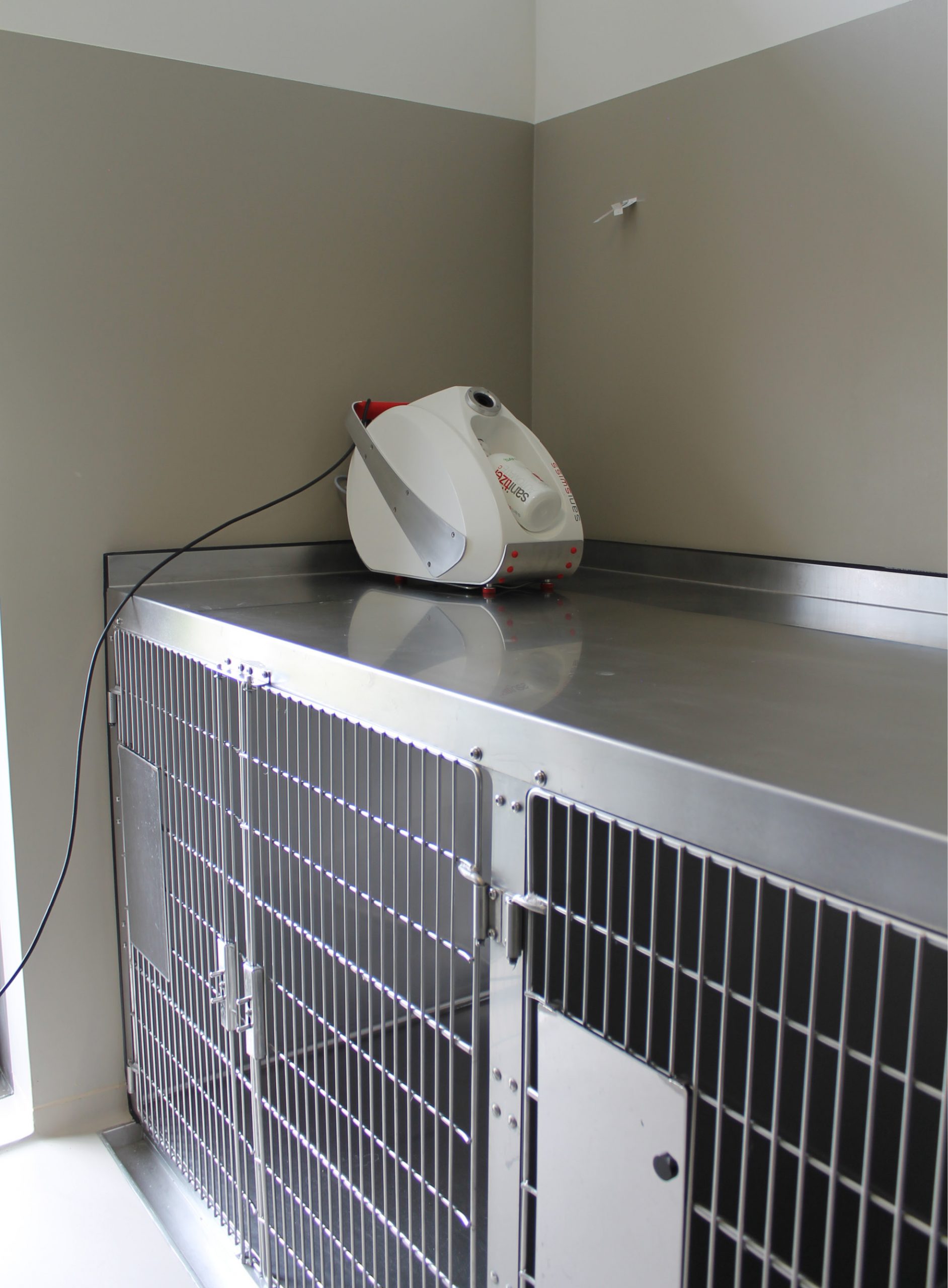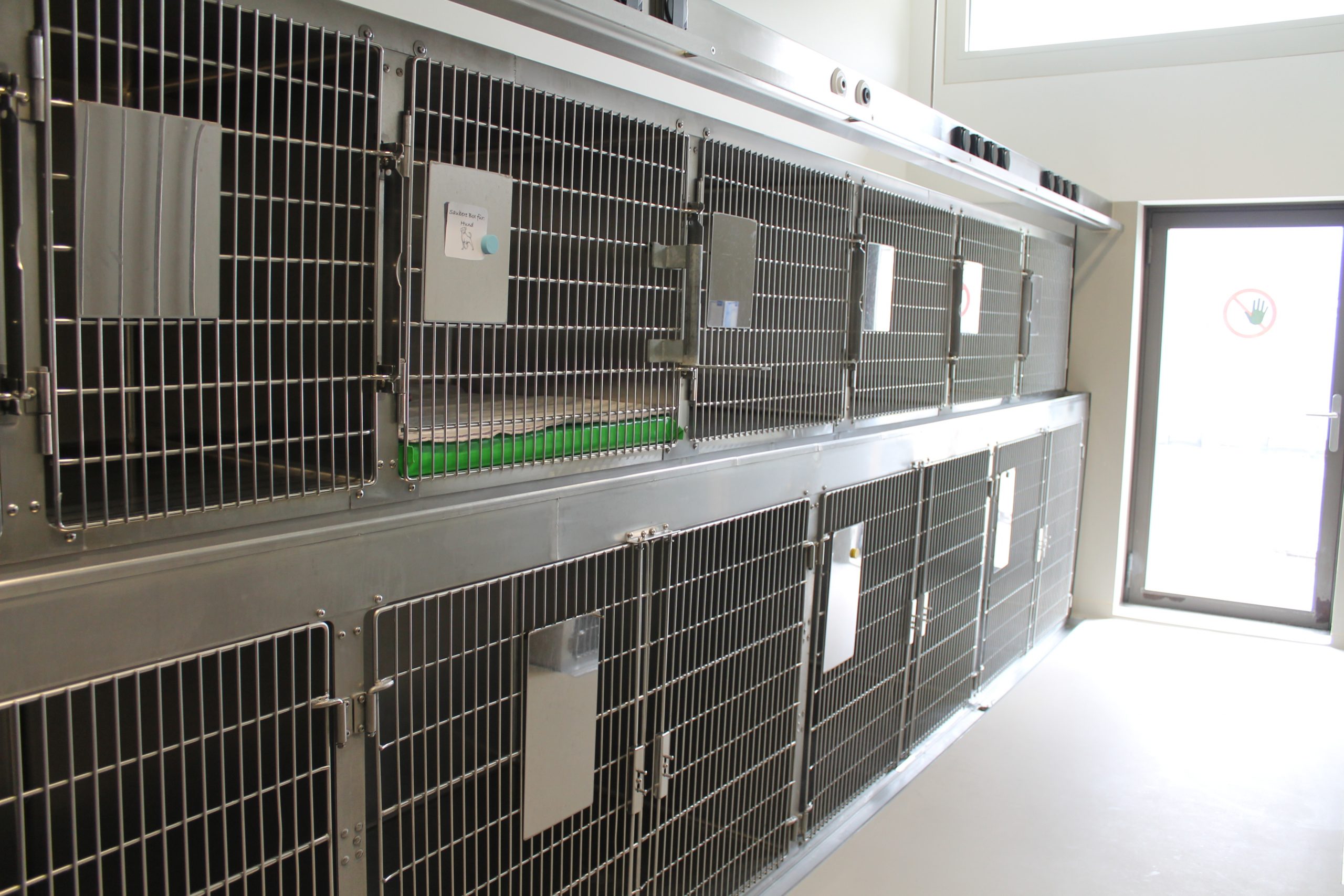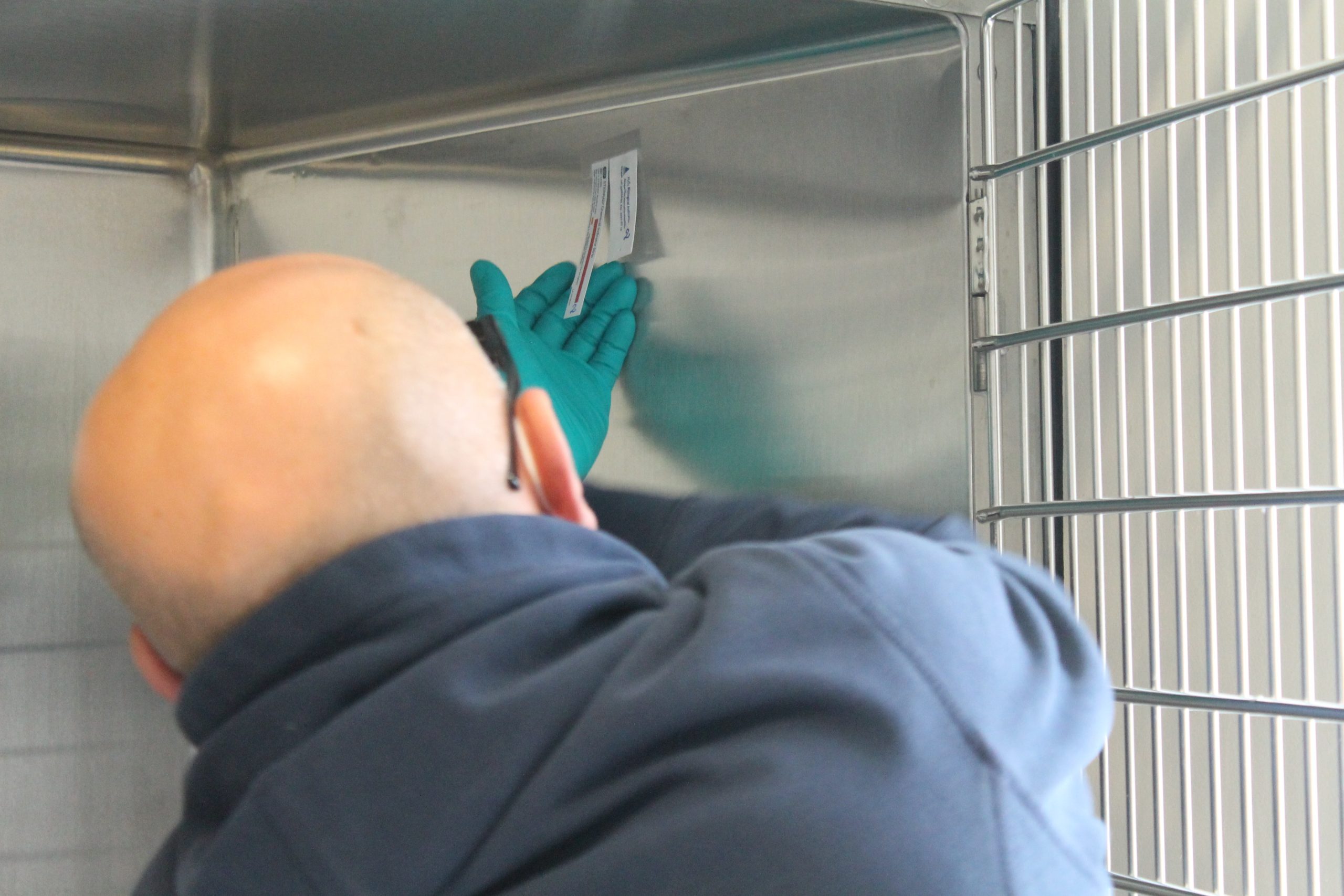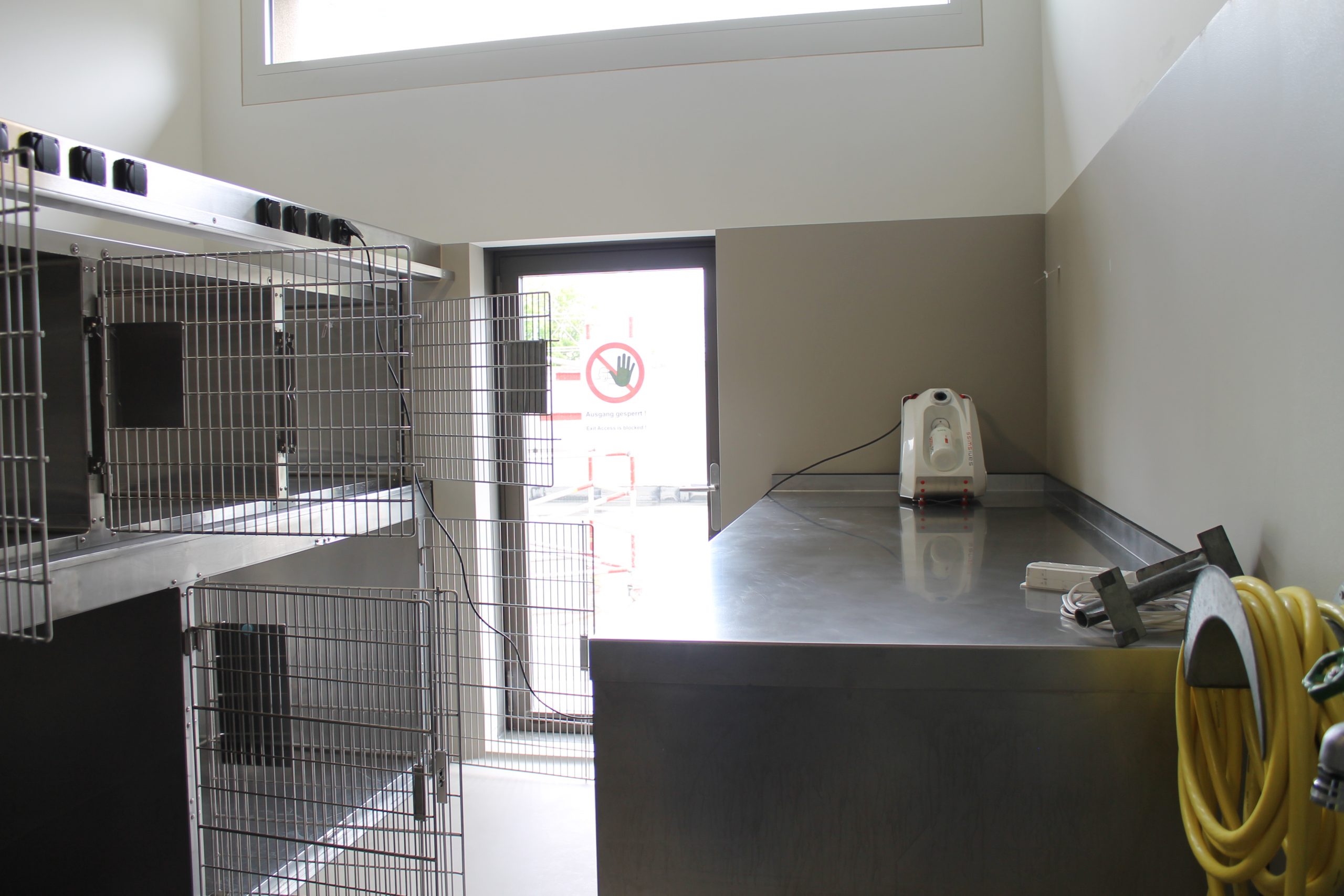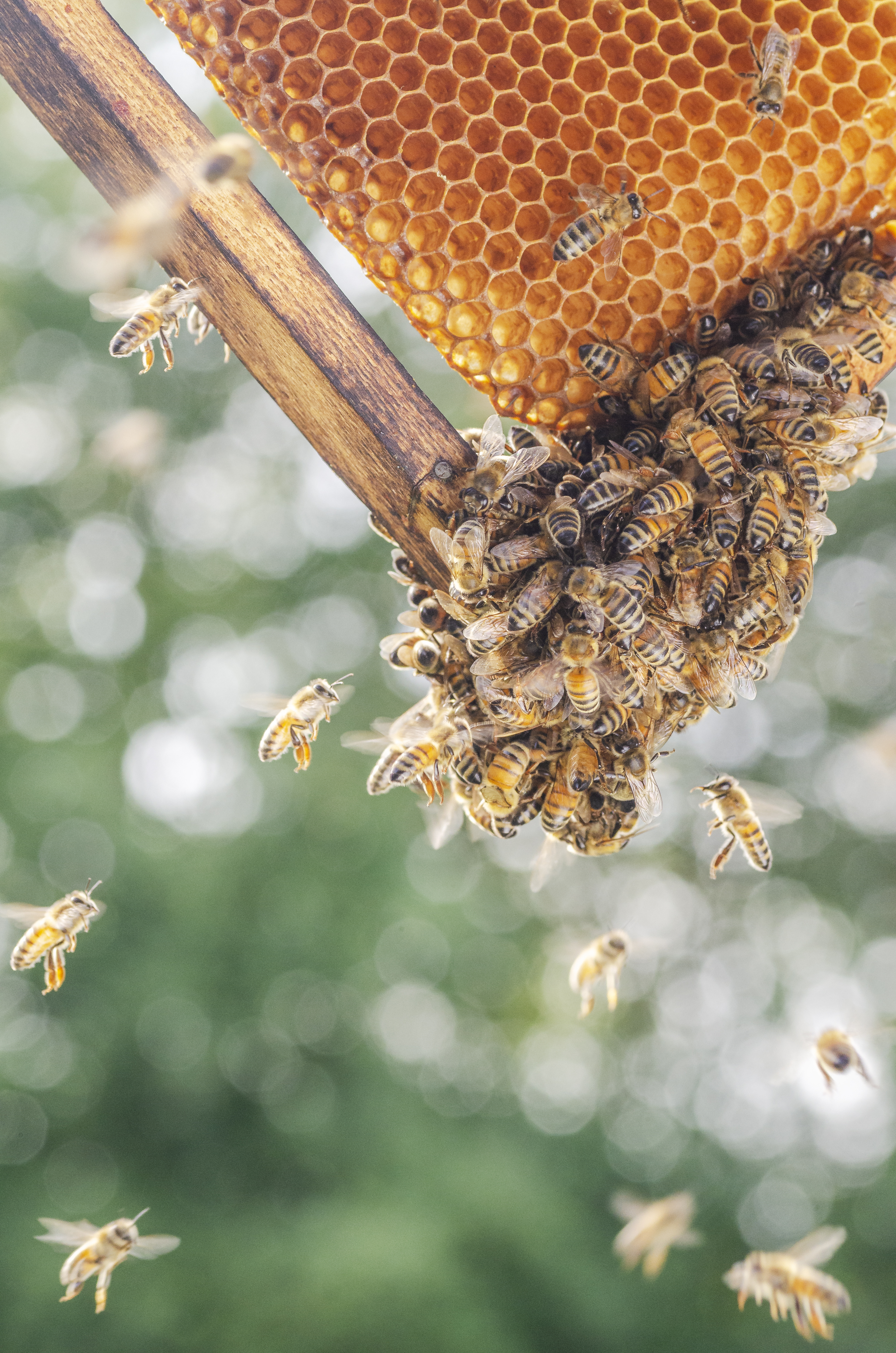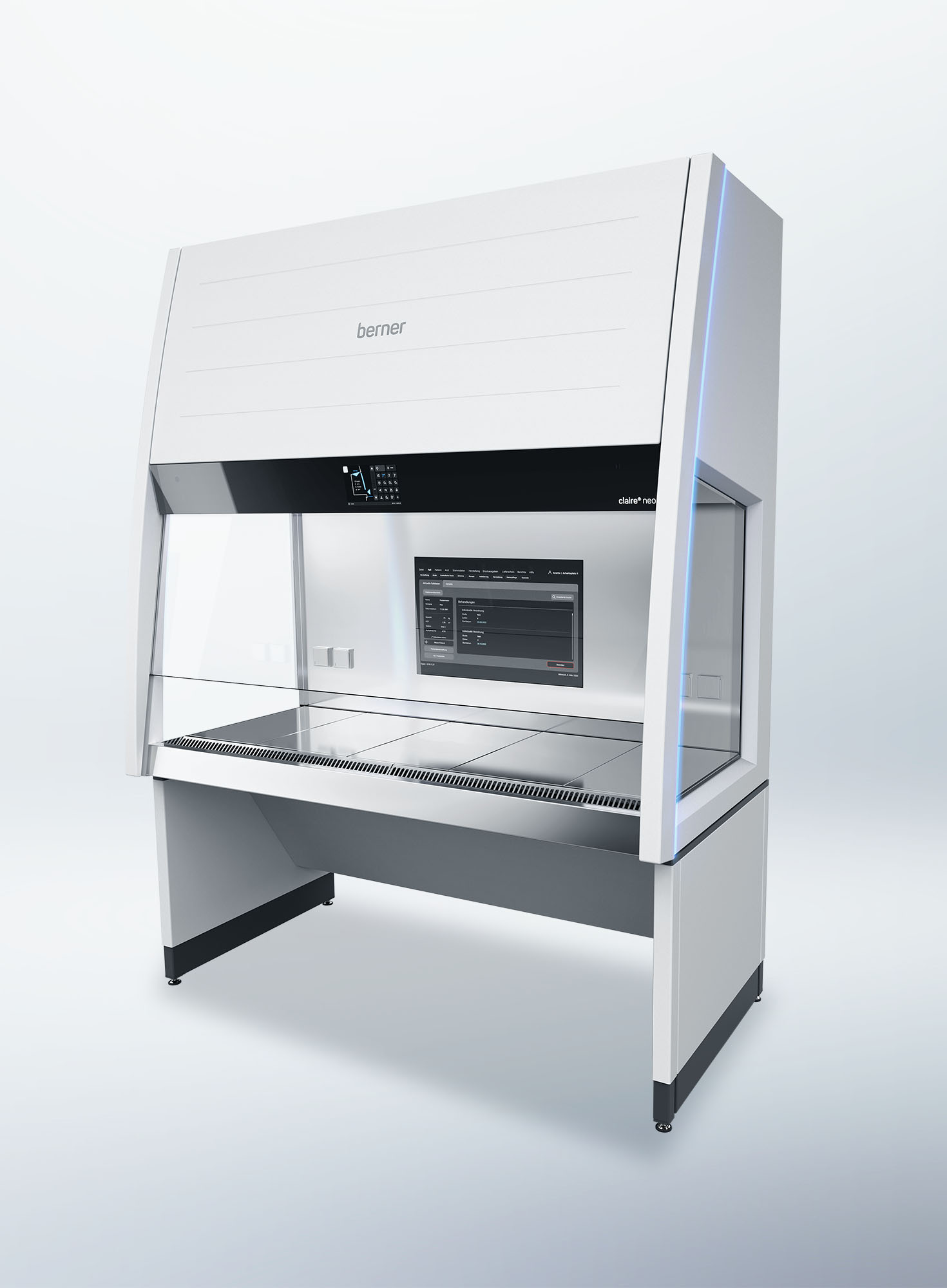Decontamination of animal accommodation
The Zurich University Animal Hospital comprises all clinical facilities of the Vetsuisse faculty at the University of Zurich. The animal hospital brings together the various departments and specialisms in veterinary medicine, treating specific animal diseases and maintaining health through prevention.
Application
Healthcare facilities make huge efforts to prevent the spread of multiresistant bacteria and viruses among patients, and this is equally true for veterinary medicine. In the case of cats, for example, particular caution is needed with calicivirus.
Infections with ‘normal’ caliciviruses are widespread in cats. These viruses cause upper respiratory infections or ‘cat flu’,
but especially aggressive variants of the virus can be fatal. Calicivirus is not dangerous to humans. Viral transmission occurs through direct contact between animals but also indirectly, for example via contaminated surfaces or clothing.
In the event of an outbreak, there is a high risk of contagion in the hospital’s animal accommodation. The hospital recognised this fact at an early stage and developed a prevention concept which includes room disinfection.
Our solution
Manual disinfection of the animal accommodation would involve considerable time and effort on the part of staff, making this an impractical option. The animal hospital therefore opted for automatic room decontamination from SKAN. This allows areas to be routinely disinfected at the touch of a button.
The automatic decontamination unit distributes H2O2 evenly in the room, even reaching hard-to-access areas.
As part of the validation process, the SKAN decontamination team identified the optimum position for the unit within the room and verified the decontamination result by means of biological and chemical indicators.

